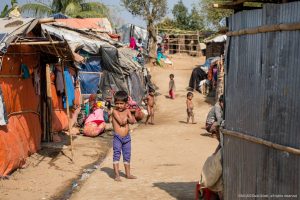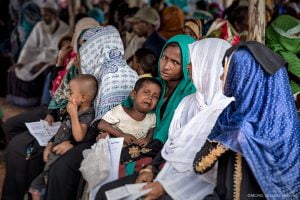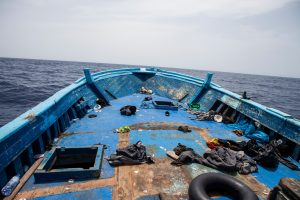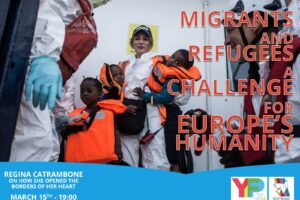Il 6 Maggio 2017 alle ore 8 del mattino la nave Phoenix è arrivata al porto di Catania che ci era stato indicato dalle autorità competenti come porto per lo sbarco dei migranti che avevamo tratto in salvo nelle ore precedenti. A bordo con noi tante famiglie, numerosi bambini e il corpo senza vita di un giovane proveniente dalla Sierra Leone che viaggiava col fratello.
Stando a quanto riportato dai superstiti, il ragazzo avrebbe perso la vita in seguito a uno sparo da parte di un trafficante che gli aveva chiesto il cappellino da baseball che indossava. Non si sa se si sia trattato di un rifiuto o di una semplice incomprensione linguistica, sta di fatto che è bastato per far premere il grilletto e uccidere un ragazzo che probabilmente aveva già sofferto indicibili dolori durante il viaggio e la permanenza in Libia.
Quel ragazzo della Sierra Leone probabilmente credeva di essere ormai a un passo dalla sicurezza, forse si sentiva confortato all’idea che dopo quel tratto di mare la sua vita sarebbe cominciata nell’Europa che sognava di raggiungere.
Ma una pallottola si è frapposta fra lui e i suoi sogni di pace e sicurezza.
Una pallottola sparata per sbaglio, cattiveria o noncuranza.
Il corpo di questo giovane è rimasto in fondo al gommone dove il fratello lo ha vegliato durante tutto il viaggio per poi salutarlo per l’ultima volta sulla banchina del porto di Catania mentre un sacerdote pronunciava delle preghiere prima che la bara venisse chiusa e portata via per la sepoltura.
Nel corso delle missioni SAR di MOAS sono molte le storie di violenza che ho ascoltato, ma non riesco mai ad abituarmi a nessuna di esse. Resto sempre sconvolta da come si possa uccidere così a sangue freddo e da quanto poco conti la vita di alcune persone che sono nate nel posto sbagliato al momento peggiore.
Mi viene difficile credere di vivere in un mondo dove si spara e si muore per un cappellino da baseball.
Ma questa non è l’unica storia che porto con me dopo quest’ultimo sbarco, di certo però è quella senza lieto fine.
Fra le altre storie che custodisco nel cuore ci sono quella di una famiglia siriana e di una donna del Camerun.
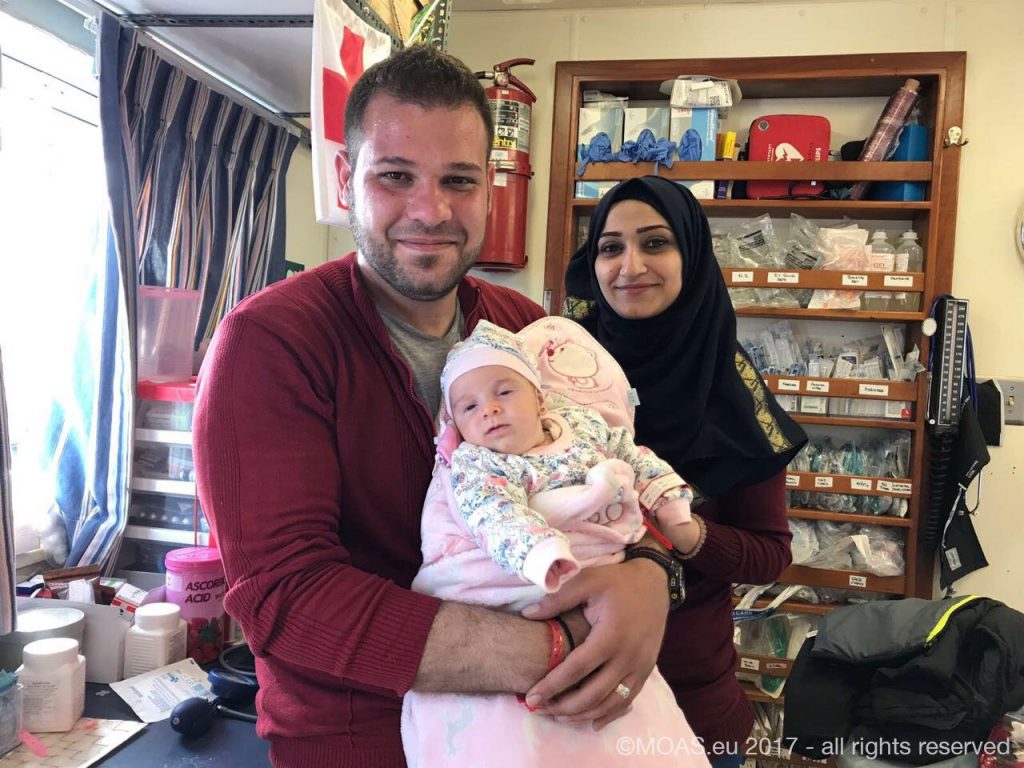
Mahmood, 27 anni, e la moglie Doaa, 26 anni, vengono da Damasco e hanno tentato ben 4 volte di oltrepassare il Mediterraneo in cerca di salvezza prima di essere ammassati su un gommone fatiscente, poi assistito dall’equipaggio MOAS. Con loro c’era la figlia Rital di appena due mesi nata in Libia, a Sabrata.
Entrambi avvocati, sono stati costretti dal conflitto in corso ad abbandonare il loro paese in cerca di una vita al sicuro dalle bombe e hanno dovuto rischiare la vita in mare prima di giungere a Catania.
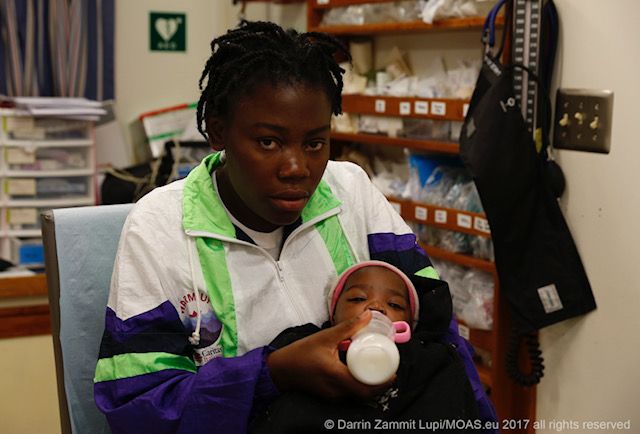
Infine, ricordo Nadine di 22 anni, arrivata dal Camerun con la figlia Hope di soli 4 mesi. Il suo viaggio inizia nel 2013 e prima di arrivare in Libia ha attraversato il Niger. Quando ha scoperto di essere incinta, il suo compagno non voleva assumersene la responsabilità, ma lei ha portato avanti la gravidanza partorendo in un campo di detenzione in Libia.
Questa ragazza così giovane ha partorito da sola in una prigione senza nessun tipo di assistenza medica, senza nessuno a confortarla o prendersi cura della bambina appena venuta al mondo. Mi racconta con grande emozione che ha tagliato da sola il cordone ombelicale e sanguinato per settimane dopo il parto senza ricevere nessuna cura e da madre, da donna provo un enorme dolore.
La prima volta che un dottore ha potuto visitarla è stata a bordo della Phoenix dove le sono state restituite dignità e speranza dal nostro equipaggio.
Queste storie sono la testimonianza che la presenza delle ONG in mare è fondamentale per evitare un aumento del bilancio già altissimo di vittime e violenza che colpiscono i migranti in fuga da situazioni disperate.
Nessuna di queste persone avrebbe dovuto affidare la propria vita ad un trafficante che specula sulle loro paure.
Nessuno dovrebbe morire per un cappellino da baseball o partorire in una prigione senza nessuna assistenza medica.
Proprio per questo motivo non ci stancheremo di chiedere l’apertura di vie legali e sicure in quanto i corridoi umanitari sono l’unica soluzione per evitare che i trafficanti continuino a far prosperare il proprio business sulla pelle dei più vulnerabili.
Da Agosto 2016 MOAS si impegna quotidianamente per far diventare questo progetto una realtà concreta in grado di risparmiare ulteriori morti in mare e adesso speriamo che sia finalmente arrivato il momento di poterlo fare.
[donate_button_blog]

